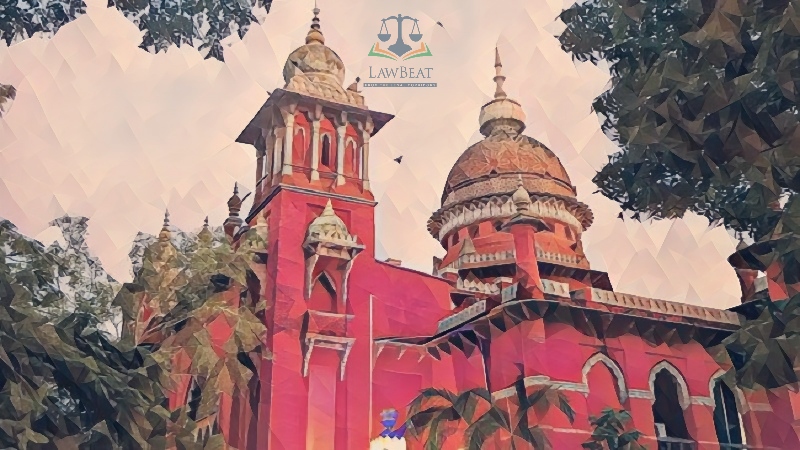If no contrary custom/practice, Hindu Tribal Women in Tamil Nadu entitled to their share in family property: Madras High Court

The high court confirmed an October 2017 order of a trial court that had held that tribal women in Tamil Nadu are entitled to a share in the family property at par with the share of the male family members.
The Madras High Court recently upheld a trial court order which decreed a suit in favour of a tribal woman who claimed equal share in the family property by instituting a suit for partition.
The trial court had invoked the provisions of the Hindu Succession Act, 1956, and held that the tribal women are also entitled for equal share in their family property on par with the other male coparceners. The defendants in the suit had then filed an appeal before the high court.
The bench of Justice SM Subramaniam was, therefore, posed with an important question— whether the tribal women in the State of Tamil Nadu can be excluded from their share in the family property under the Hindu Succession Act, 1956.
To be noted, Section 2(2) of the Hindu Succession Act, 1956 stipulates: “ Notwithstanding anything contained in sub-section (1), nothing contained in this Act shall apply to the members of any Scheduled Tribe within the meaning of clause (25) of Article 366 of the Constitution unless the Central Government, by notification in the Official Gazette, otherwise directs.”
Relying on the above provision, the counsel for the appellant reiterated that the scheduled tribe women are expressly excluded from the provisions of the Act and therefore, the trial court had erroneously applied the Hindu Succession Act and granted relief in the suit, which was untenable.
However, the contention was opposed by the counsel for the tribal woman who asserted that the appellant had miserably failed to establish the custom and practice, if any prevailing amongst the community, where the woman and appellant belong and in the absence of any such proof to establish such custom of practice, the Hindu Succession Act alone should be applied and therefore, the trial court was right in granting the relief of partition to the plaintiff.
While adjudicating upon the issue, the high court took into account the spirit of Section 2(2) of the Hindu Succession Act 1956, with reference to Article 366(25) of the Constitution of India.
Article 366(25) of the Constitution contemplates: “Scheduled Tribes means such tribes or tribal communities or parts of or groups within such tribes or tribal communities as are deemed under Article 342 to be Scheduled Tribes for the purposes of this Constitution.”
Court noted that in the present case, the parties to the suit fell under the category of notified tribes and therefore, it was to be examined, whether the parties have established any custom and practice for the purpose of applying the exclusion clause contemplated under Section 2(2) of the Hindu Succession Act.
In the absence of any such custom and practice, which is to be proved, the Courts have no option but to apply Hindu Succession Act, since the parties are professing Hinduism and further there is no other reason whatsoever to deprive equal share to women on par with the male coparceners, Court stated.
While examining Section 2(2) which expressly stipulates that “nothing contained in this Act shall apply to the members of any Scheduled Tribe within the meaning of Clause (25) of Article 366 of the Constitution unless the Central Government, by notification in the Official Gazette, otherwise directs”, court held that when the custom and usage is not established nor prevailing, then the Central Government has to notify, enabling such tribal women to get equal shares in the family property.
"Mere non-issuance of notification or postponement of issuing notification as required under Section 2(2) of the Hindu Succession Act cannot deprive the scheduled tribe women from getting their right in the family property, more specifically for equal share," Court held.
Court said that Section 2(2) cannot be construed as a complete bar for invoking the provisions of the Hindu Succession Act but it paves way for the Central Government to notify the tribal communities, who have already moved forward and whose primitive customs and practice are not prevailing amongst the community for inheritance.
Further, the court observed that Section 2(3) of the Hindu Succession Act cogently would reveal that the statute never intended to exclude the tribal women completely from the application of the Act but contemplated to enable the tribal community to adopt their custom and practice in the absence of any notification by the Central Government.
Court held that this provision does not deprive the tribal women from getting equal share in the family property.
Court further said that a Scheduled tribe, pure and simple, who is adhering to its custom is to be distinguished from that who has been Hindu, prior to the commencement of the Hindu Succession Act and such Hindu tribal do fall within Section 2(1) (c) of the Act and may be treated as “Hindu” because there is no proof on record to show that such tribals could not have been turned by the Hindu law.
Noting that nothing had been shown about the custom and practice prevailing in the community, where the parties to the lis on hand belong, court held that Sub Section (2) of Section 2 of the Hindu Succession Act 1956, will not come in the way of inheritance of the property by the daughters belonging to the tribal area, where Hinduism and Buddhism are followed.
Court underscored, "He who relies upon custom, varying the general law, must plead and prove it. Customs must be established by clear and unambiguous evidence. It is to be proved that it is not opposed to public policy, more specifically not unconstitutional".
